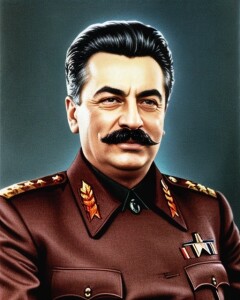The Holodomor, or the Ukrainian famine of 1932-1933, holds a stark place in Ukrainian history. This devastating event was orchestrated by the Soviet Union, specifically under Joseph Stalin’s leadership, with the intention of suppressing Ukrainian nationalism and enforcing agricultural collectivization. The policies implemented during this distressing period resulted in the loss of countless Ukrainian lives, positioning it as one of the most tragic and fatal famines in recorded human history.
Under the guidance of the Soviet government, Ukrainian peasants suffered the forcible seizure of their grain and other crucial food supplies. This left them devoid of sustenance for themselves and their families, enduring unimaginable deprivation. Heart-wrenching accounts depict individuals resorting to extreme measures such as consuming grass and bark, and in some instances, even resorting to the unimaginable act of consuming their own children in desperate attempts to survive.
The effects of this famine were not confined solely to physical suffering. They resonated deeply within Ukrainian culture and identity. The deliberate targeting of Ukrainians and the erosion of their way of life left lasting wounds, wounds that can still be felt today. The Ukrainian famine of 1932-1933 serves as a poignant reminder of the immeasurable toll inflicted by political oppression and the cold-hearted disregard for human life.
Above all, it stands as a testament to the indomitable resilience of the Ukrainian people. They have persistently strived to preserve their history and honor the memory of those who perished during this tragic era.

